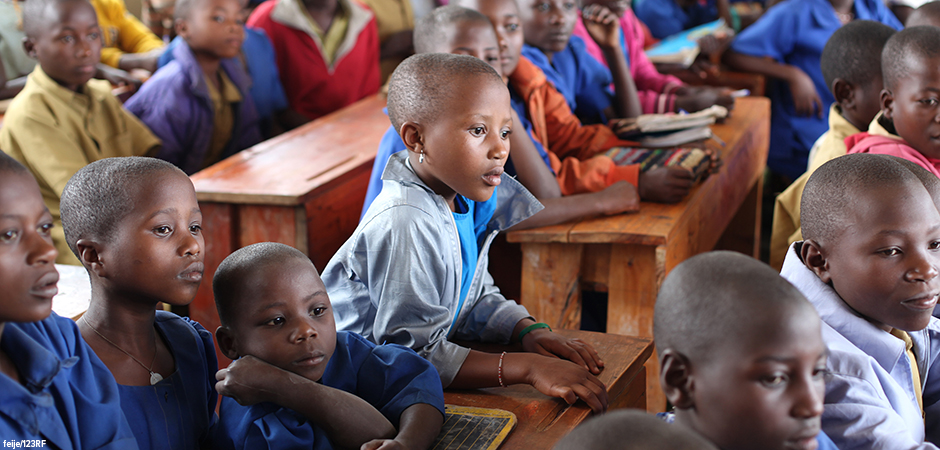
You have probably heard of recycling, but have you learned about upcycling? Upcycling takes waste materials and finds new and important uses for them. This week btw takes a closer look at Soma Bags, a Tanzanian start-up company that meets a vital need by upcycling discarded cement bags into a way to help children in rural villages succeed at school.
Turning On the Light
Soma Bags began with a great idea. 33-year-old Innocent James grew up in a rural area of northern Tanzania. By the time James finished his chores at night, it was too dark for him to read or do his schoolwork. But James, whose mother and grandmother were both schoolteachers, loved to read. His parents had to allow him to burn the kerosene lantern at night in order to study. But kerosene is expensive, and the lamps provide dim light. Kerosene lanterns also pollute the air and can even cause fires. Many in Tanzania still rely on kerosene lanterns to see after dark. (More than 70 percent of households in rural Tanzania don’t have electricity.)
This lack of night-time lighting is a big problem for children in rural Tanzania. They often must walk long distances to and from school–sometimes several hours each way. The sun sets early on the equator (at around 7pm year-round). So, by the time these children get home from school, it’s too dark to read or study.
Later in life, James came across this problem again. As a university student in the city, he noticed that children no longer seemed to have much interest in reading. This bothered him so much that he decided to drop out of university early and use his tuition money to buy a mobile library cart. James began to visit schools, to spread the love of reading. But he soon noticed that a lot of children were returning books to him unread. The children told him that they wanted to read books, but their parents couldn’t afford to pay for the kerosene needed for nighttime reading.
A Great Idea is Born

Innocent James never gave up trying to solve this problem. In 2016, he met a university professor who charged his phone using a solar charger, which was sewn into a pocket in his jacket. This gave James an idea. He decided to do the same thing with backpacks. James began sewing flexible solar panels into discarded cement bags that he found in the street, and Soma Bags was born.
Here’s how the backpacks work: each one has a solar panel sewn into the outside of the backpack. The solar panel is connected to a built-in rechargeable reading lamp inside the backpack. When children wear their backpacks on their long walk to and from school, the bag’s solar panel charges the batteries of the reading light. A fully charged lamp will provide up to eight hours of light.
The Great Idea Goes Big
Working alone and sewing by hand, James was able to make about eighty bags per month. He sold them for 12,000 to 22,500 Tanzanian shillings apiece. This cost is roughly $4 to $8, which is about the same cost to burn a kerosene lamp for less than a month. James’s ideas were very popular, and he couldn’t make enough bags to keep up with the growing demand.
Luckily, in 2023, Soma Bags gained the support of the United Nations Development Program (UNDP). The goal of this program is to help fund sustainable and educational opportunities for underserved populations. Soma Bags does both. Thanks to the UN’s support, Soma Bags now has two manufacturing locations with 60 sewing machines and over 85 rural employees. They are dedicated to making stylish, high-quality bags at the lowest possible price.
Last year, Soma Bags sold 36,000 solar backpacks to people across the African continent. The company has been visited by ambassadors from many countries, including the United Kingdom and the European Union. Soma Bags has also secured a five-year, $250,000 deal with a Belgian company, which ensures the company’s success going forward. Most importantly, children’s academic performance has improved, and about 200,000 cement bags are kept from becoming street litter every month.
Innocent James is still a key part of Soma Bags. Every day, he visits schools to show students and teachers how the backpacks work. He also uses his company’s profits for a very important cause: supporting his travelling library and providing children in rural Tanzania with books.
